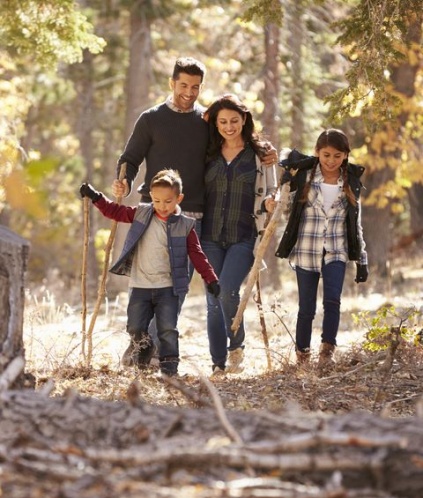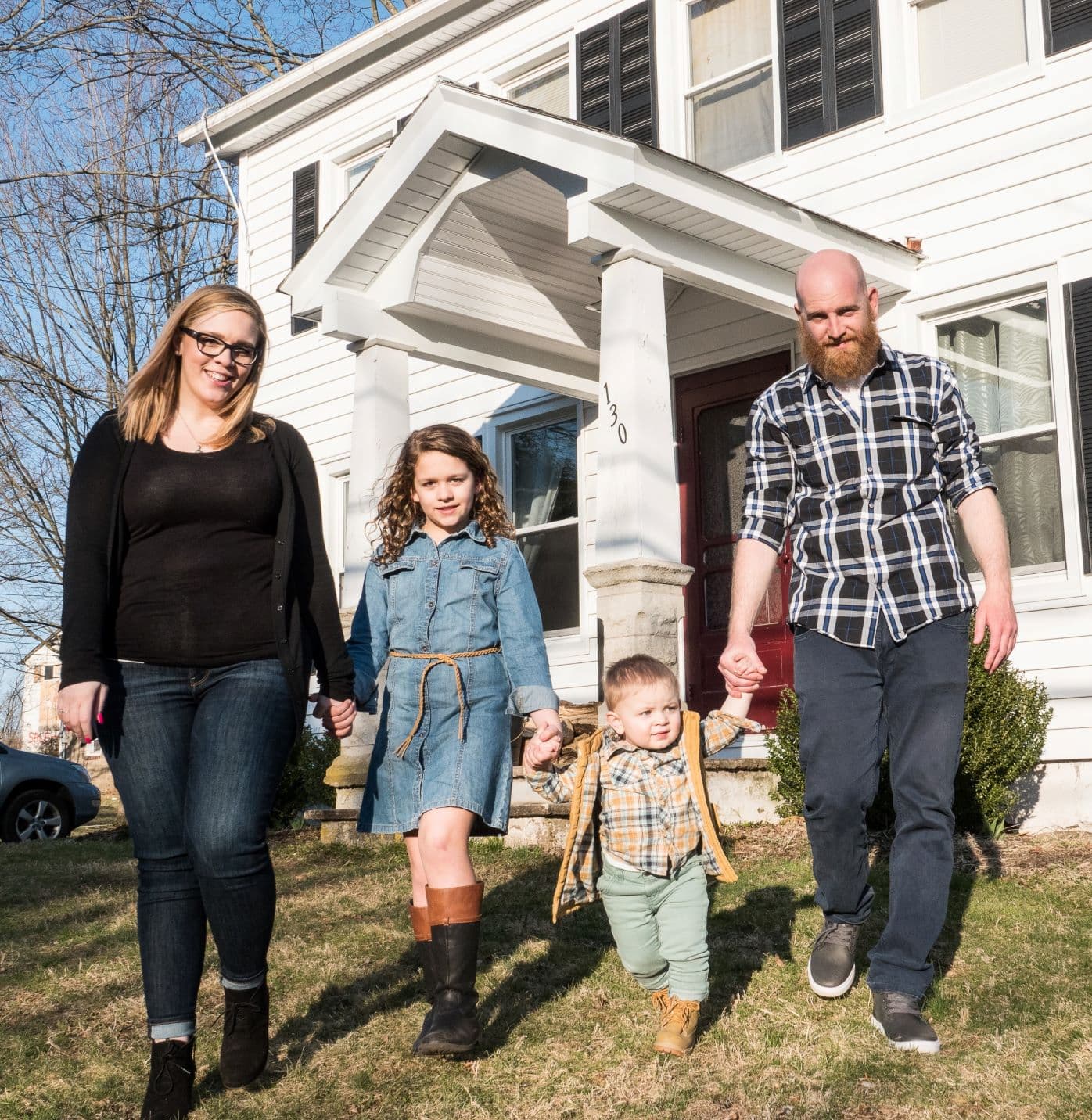The Mulligan Street Minutes
Winter 2021
Welcome to the Campaign for Change
Progress is impossible without change.
—George Bernard Shaw
In just two weeks, it will be exactly one year since the onset of COVID when most of our staff began working remotely and our shelter families were moved from the congregations into a hotel. For the past twelve months the only thing that has been consistent is change.
Some of this change has been out of our hands—the rapidly spreading virus, school closures, job losses. But some of the changes at Family Promise Metrowest have been of our own making. We’ve changed how we deliver services to our families, we’ve changed our events and communications, we’ve changed how, and where, we work together. But mostly, we’ve helped our families continue to change their lives, despite COVID.
Last year, at the onset of the pandemic, we launched our Campaign for Hope—wanting to inspire optimism and action amidst crisis. This year, we are now launching our Campaign for Change to bring attention to all the ways our families and our organization have risen to meet the challenge of homelessness, and to raise support for all the changes now on our horizon. We invite you to view the following video from Sue Crossley, our Executive Director, about our Campaign for Change, and what lies ahead for our families and our work.
Building Our Connections
Changes in our world over the last year have rearranged how we approach much of our work at Family Promise, but their greatest impact has been on our fundraising events. When COVID descended on us a year ago, plans for our annual walkathon were well underway, but to keep everyone safe, we cancelled this long-standing tradition. In the early summer, despite our continual optimism that the virus would abate, we had to call off our annual Keep the Promise gala. These were losses of not just fundraising opportunities, but much-anticipated celebrations of our community and our shared successes. What we didn’t anticipate at the time were the lessons and opportunities that rose up in their absence.
Our walk last spring was transformed last-minute into the online Campaign for Hope, during which we shared family stories of resilience and hope, and our community offered extraordinary compassion and generosity in response. For the fall event, our gala was not an option, so we tried something completely different and hosted a virtual concert that over 1,200 people viewed online. Once again, you helped us exceed our goal, enabling us to keep meeting the needs of our families.
At this point, we can’t predict what the future will hold for our events, but these unexpected reinventions of how we bring our community together have already created some lasting changes in our approach to engaging with all of you. Here’s what we’ve learned:
- Not everyone wants to come to events. While many of you told us how much you missed showing up, dressing up, and celebrating in person, some of you have shared that the virtual celebration was more engaging and meaningful for you. Still others have confessed that you simply prefer to make donations to support our work and that attending events, live or virtual, is not a priority in your hectic lives. We hear all of you, and we will make certain to continue offering diverse ways to engage with us.
- Everyone wants to hear more about our families. With a closed Day Center and the absence of in-person volunteering, we worked very hard this year to enhance our communications and make sure all of you knew what was happening with our families and in our organization. We prioritized sharing stories of hope and persistence and giving continual examples of the transformative impact of your support. We’ve received so much positive feedback about these efforts, we’re committed to keeping these communication channels wide open, giving you an even better glimpse into how we approach our work and how our families are faring.
- Everyone wants to feel connected. In our mutual isolation this last year, we’ve all yearned for connection. Some of you have told us that being shut inside your homes has actually led you to engage with the outside world more than ever before. You’ve reached out to old friends, learned new hobbies with online communities (sourdough baking, anyone?), and found ways to safely engage outdoors (firepits, hikes, drive-by birthdays). I think we all understand now just how much we need each other, how vital community is to get us through a crisis. The families we serve have been showing us that for years. We all get it now, more than ever.
In this spirit of continual transformation, we are thrilled to be sharing our spring Campaign for Change with all of you to highlight and raise support for the new ways we are working to change the future for families facing homeless. This campaign, which officially launches on Monday, March 1, will feature an online fundraising initiative, a Walk for Change, and a Raffle for Change. Stay tuned to our emails and stories in the coming days and weeks with more information on all these efforts. We can’t wait to see what these changes will bring!
Expanding Prevention Services
The launch of our LIFE homelessness prevention program in 2017 was a watershed moment for FPM. Within one year, this new program doubled the number of individuals we served; within three years, our numbers had tripled. We were supporting more families while preventing the trauma of having children enter shelter. The need for homelessness prevention couldn’t have been clearer.
In 2019, the National Low-Income Housing Coalition estimated a shortage of almost 170,000 affordably priced units for low-income households in Massachusetts. The math is obvious: If a family loses its affordable housing, finding a new apartment will be difficult, if not impossible, often resulting in homelessness. Our commitment to helping families remain in their own homes addresses the crisis, prevents trauma, and is the most cost-effective way to decrease family homelessness.
Over this past year, we began identifying another trend: many families contacting our LIFE program had already lost their housing (and were thus technically homeless), but they still had options on the table to help them avoid entering shelter. Some of these families simply needed help with moving expenses, others needed mediation support to go back to their former housing, and still others simply needed a safe place to stay for a few days until they could move into permanent housing elsewhere. Technically, these weren’t families that fell under the “homelessness prevention” umbrella; these were families who needed immediate support to get back into housing quickly and bypass shelter entry altogether. These families needed “shelter diversion” services.

In looking back over the families we served in the LIFE program last year, 7 of the 24 had actually received diversion, not prevention support. Four families didn’t have enough in savings to pay security deposits on a new home, while the other three simply needed referrals to a municipal program that would make their rent more affordable. We helped meet all these needs, and all seven families secured new housing and avoided entering shelter. Yet another way to broaden our impact had revealed itself.
So this year, we are making changes to how we evaluate families coming to us for services, formally adding shelter diversion support to the spectrum of options we offer families who contact our offices. Nothing about the fundamental approach to LIFE is changing; we are simply changing our thinking about how homelessness is defined and addressed. By officially adding diversion support to our continuum of services, we will be able to help families who might have been referred elsewhere in the past or may have entered shelter when they could have found a new home instead. We look forward to the continued growth of the LIFE program, and to helping even more children have safe, secure homes where they can grow, learn, and play.
A New Name for Transitional Living
In 2013, five years after Family Promise Metrowest was founded, we noticed a concerning trend. Families that had gone through our shelter program successfully were starting to reach back out to us within the year. Although they had met their goals in shelter, their transition back into their own apartments wasn’t going as smoothly as we hoped. Budgets were getting tight again and unexpected expenses were creating hard choices between keeping up with the bills or meeting a pressing need.
This recognition led to the founding of our Transitional Living Program—an enhanced approach to serving families that helped ease the transition back into apartments by offering continued case management and monthly subsidies toward rent for one year post-shelter. The addition of this program to our continuum of family services was life-changing. Families had time to adjust their budgets, expectations, and future goals to ensure they stayed on the path to sustainability permanently.

However, over time we’ve realized that we aren’t exactly offering “transitional” support to families, we are offering what is better known in the housing field as “stabilization services.” Transitional Housing is a formal category of housing support, where families move from shelter into a temporary home for a period of time before moving into permanent housing. With the exception of the two families in our Bacon Street house, our families at FPM technically skip this step, moving from shelter right into their own homes.
Therefore, we’ve decided it’s time to rename the Transitional Living Program so that it better reflects the actual services that we provide, while more closely aligning with common definitions of housing support services. We spent some time as a staff thinking about what kind of name made more sense to us and would better reflect not just what we offer to families moving from shelter, but also what we hope they achieve through the ongoing support of a post-shelter program.
Thus, we are very happy to formally announce our “rebranded” Transitional Living program as the SAIL Program: Sustaining Achievements for Independent Living. This new name captures what we wish most for our families: That their time with us in shelter gave them the support and skills to launch into this next stage in their lives with confidence. Although the impacts of COVID have led us to make some adjustments in how we help families in this program, fundamentally our goal is unchanged: To nurture a foundation of stability and sustainability that will enable our families to permanently break the cycle of poverty and sail into their successful future.